Interview with Vandita Morarka: Policy & Legal Officer, Safecity & Founder PenPal Inc.
Q) The most obvious question first, did you choose law or
did it choose you?
did it choose you?
I can truly say Law chose me. I
have single-mindedly wanted to pursue Law
in one of its varied forms as a career option from as far back as I can
remember.
have single-mindedly wanted to pursue Law
in one of its varied forms as a career option from as far back as I can
remember.
Q) You have been involved with numerous initiatives and
organizations throughout your law school life. How do you balance the already
hectic law school life with your other activities?
organizations throughout your law school life. How do you balance the already
hectic law school life with your other activities?
I find that being involved with
other organizations and initiatives helps me streamline and focus better when
it comes to Law school. In terms of balancing, on most days it’s touch and go. But I think its
manageable if it’s truly what you want to be doing
other organizations and initiatives helps me streamline and focus better when
it comes to Law school. In terms of balancing, on most days it’s touch and go. But I think its
manageable if it’s truly what you want to be doing
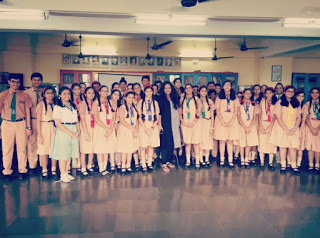 |
| Vandita (Center) with participants of a Gender Workshop in Ryan, Goregaon |
since if you’re dragging
yourself without enjoying the learning process – you often find ways to create
imbalance yourself. I am also pursuing an MA (Hons.) in Public policy, so the
additional work here stimulates my interest and keeps Law school from being
monotonous. Since a lot of my work is related to law or policy work, work
itself becomes a constant learning process for me. In fact, other activities have helped my understanding of Law more
deeply than the LL.B. course or Law school itself may have.
Q) Tell us about your experience with EXAP.
The EXcellence in Arts Program (EXAP) at
Sophia College for Women has been an unforgettable experience. It’s an
immersive, selective program that one undertakes alongside their regular BA
course. For me, it opened up a world of
knowledge that I had had no idea about. EXAP is brilliant also for the
mentoring it provides you, in close contact with senior professors and
academicians while giving you the freedom to develop your own thinking process.
Beyond research, we were taught diligence, integrity and a social consciousness
oft missing from our regular formal education structures. I’m sure I speak for my EXAP cohort when I say
that we take ahead all that we learnt in
EXAP each day and it continues to reflect strongly in our work and personal
life.
Sophia College for Women has been an unforgettable experience. It’s an
immersive, selective program that one undertakes alongside their regular BA
course. For me, it opened up a world of
knowledge that I had had no idea about. EXAP is brilliant also for the
mentoring it provides you, in close contact with senior professors and
academicians while giving you the freedom to develop your own thinking process.
Beyond research, we were taught diligence, integrity and a social consciousness
oft missing from our regular formal education structures. I’m sure I speak for my EXAP cohort when I say
that we take ahead all that we learnt in
EXAP each day and it continues to reflect strongly in our work and personal
life.
Q) You were part of a team which conducted a research study of the Third Gender community in
Mumbai. How was your experience and what motivated you to take up that specific
cause?
Mumbai. How was your experience and what motivated you to take up that specific
cause?
We had to decide on selecting a research topic soon after the NALSA judgment. What worked as the deciding
factor for us was how much silence these issues were shrouded in. We wanted to bring them to the forefront
and engage people and communities while at it. This motivated us to understand
on-ground perceptions, histories and gaps in awareness and acceptance of Third
gender persons to help better implementation of the law in India.
factor for us was how much silence these issues were shrouded in. We wanted to bring them to the forefront
and engage people and communities while at it. This motivated us to understand
on-ground perceptions, histories and gaps in awareness and acceptance of Third
gender persons to help better implementation of the law in India.
My experience was interesting, as it exposed several in built prejudices and biases within me and
taught me to re-examine my approach
towards development work completely. My favorite part of our research was the
case studies of Third gender persons. I think that brought forth the human
factor behind the need to address issues that Third gender persons face and that
is often lost behind fancy research terminology. This has also stayed with me
and has motivated me to create awareness on Third gender issues and continue
research on similar issues: most recently having completed a research paper on
“Inclusive Education for Third gender persons in higher secondary and college
education”. The research study has been an unmatched learning experience.
taught me to re-examine my approach
towards development work completely. My favorite part of our research was the
case studies of Third gender persons. I think that brought forth the human
factor behind the need to address issues that Third gender persons face and that
is often lost behind fancy research terminology. This has also stayed with me
and has motivated me to create awareness on Third gender issues and continue
research on similar issues: most recently having completed a research paper on
“Inclusive Education for Third gender persons in higher secondary and college
education”. The research study has been an unmatched learning experience.
Q) What awareness and changes
do you think are necessary
in India to properly integrate the Third Gender as an integral part of
the society?
do you think are necessary
in India to properly integrate the Third Gender as an integral part of
the society?
I am still learning the struggles
and challenges that everyday life brings
to Third gender persons.I do realize that while societal perceptions must
change and evolve to accept gender as a spectrum and not a binary, we must work
alongside to develop institutional structures that protect and promote the
interests of those that lie outside the gender binary. Key focus areas, in my
opinion, must be addressing educational gaps, creating employment
opportunities, providing healthcare access and devising strategies to address
gaps in societal status. I am of the belief that the best answer to this
question can be given by Indian Third gender persons themselves. It would aid
policy immensely if more emphasis was given on giving voice to a larger number
of third gender persons when creating solutions designed to benefit them.
and challenges that everyday life brings
to Third gender persons.I do realize that while societal perceptions must
change and evolve to accept gender as a spectrum and not a binary, we must work
alongside to develop institutional structures that protect and promote the
interests of those that lie outside the gender binary. Key focus areas, in my
opinion, must be addressing educational gaps, creating employment
opportunities, providing healthcare access and devising strategies to address
gaps in societal status. I am of the belief that the best answer to this
question can be given by Indian Third gender persons themselves. It would aid
policy immensely if more emphasis was given on giving voice to a larger number
of third gender persons when creating solutions designed to benefit them.
Q) Please tell us something
about PenPal Inc. How did you come about with that idea?
about PenPal Inc. How did you come about with that idea?
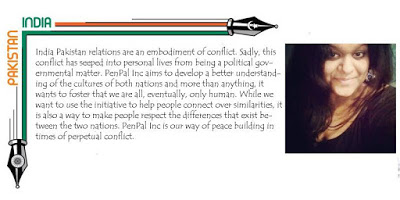 PenPal Inc. was an idea born out of a 2 am
PenPal Inc. was an idea born out of a 2 amconversation between myself and a friend from Pakistan. Our
friendship had shown to each of us a different side of the other’s country
(India & Pakistan). This is when I thought it would be fun to give other
people a chance to explore something similar. We aimed to use conversation and
civilian dialogue between people to bridge gaps between nations and that’s how
this idea came about!
Q) You have been associated
with Safecity as a Youth Outreach
Coordinator and a Policy and Legal Officer. What is Safecity about and what drew you towards them?
with Safecity as a Youth Outreach
Coordinator and a Policy and Legal Officer. What is Safecity about and what drew you towards them?
Safecity aims
to make cities safer by encouraging equal access to public spaces for everyone
especially women, through the use of crowdsourced data, community engagement
and institutional accountability.
to make cities safer by encouraging equal access to public spaces for everyone
especially women, through the use of crowdsourced data, community engagement
and institutional accountability.
I had worked with Safecity when I
was heading Students for Social Reform Initiative at Sophia College. I loved how they were seamlessly
integrating technology and new age ideas to tackle the everyday issue of sexual
harassment in public spaces. Apart from that, it seemed like and has been a
great place to learn, for self growth and
some brilliant mentoring.
was heading Students for Social Reform Initiative at Sophia College. I loved how they were seamlessly
integrating technology and new age ideas to tackle the everyday issue of sexual
harassment in public spaces. Apart from that, it seemed like and has been a
great place to learn, for self growth and
some brilliant mentoring.
Q) Please share some of your
experience of working with Safecity?
experience of working with Safecity?
In the year that I worked as the Youth Outreach Coordinator, I had a
large number of volunteers and interns reach out to me post our workshops,
activities or even on a personal level to tell me how much Safecity’s work had
touched their lives. I have had young individuals share stories of battling
their own issues of sexual harassment and finding in Safecity a safe place to talk about
the same. These stories have given me hope of building a better and safer
future. It was through that work, that my current work profile has emerged, as a
Policy & Legal Officer. I have worked
on projects that aim at more institutional and policy level corrections in our
systems that aid this harassment. My experiences of working with Safecity have shown me how the work of a few
people can touch so many lives. Professionally it has helped me learn immensely
and apply skills I have gained through my education through practical real life experiences. In all, it’s been fabulous!
large number of volunteers and interns reach out to me post our workshops,
activities or even on a personal level to tell me how much Safecity’s work had
touched their lives. I have had young individuals share stories of battling
their own issues of sexual harassment and finding in Safecity a safe place to talk about
the same. These stories have given me hope of building a better and safer
future. It was through that work, that my current work profile has emerged, as a
Policy & Legal Officer. I have worked
on projects that aim at more institutional and policy level corrections in our
systems that aid this harassment. My experiences of working with Safecity have shown me how the work of a few
people can touch so many lives. Professionally it has helped me learn immensely
and apply skills I have gained through my education through practical real life experiences. In all, it’s been fabulous!
Q) If you had to remember one
moment, which can be categorized as a defining moment of your life, which one
experience would you remember?
moment, which can be categorized as a defining moment of your life, which one
experience would you remember?
I think this was back in 2013, while I had been inclined towards
development work – this incident somehow always comes to my mind when I think
of the ‘why’ of my work today. This was when I was with Students for Social
Reform Initiative. We used to conduct football training for the young children
of the Agripada slum area in a tie up with OSCAR Foundation on weekends. Post
one of our events I remember buying a bottle of water to drink and the children
all gathered around me excitedly to have some of this water. They were so
excited to be drinking water! In all of my life, I have never felt the privilege I was born into more
acutely. This moment taught me why we must all in our lives strive to create
systems and institutes that foster more equality. I never want for even one
child to be excited at the prospect of bottled drinking
water while I know so many who would use that same water carelessly . This
experience defines for me the need for a more just and equitable world and
pretty much set the course of my life thereafter.
development work – this incident somehow always comes to my mind when I think
of the ‘why’ of my work today. This was when I was with Students for Social
Reform Initiative. We used to conduct football training for the young children
of the Agripada slum area in a tie up with OSCAR Foundation on weekends. Post
one of our events I remember buying a bottle of water to drink and the children
all gathered around me excitedly to have some of this water. They were so
excited to be drinking water! In all of my life, I have never felt the privilege I was born into more
acutely. This moment taught me why we must all in our lives strive to create
systems and institutes that foster more equality. I never want for even one
child to be excited at the prospect of bottled drinking
water while I know so many who would use that same water carelessly . This
experience defines for me the need for a more just and equitable world and
pretty much set the course of my life thereafter.
Q) Where do you see yourself in
your future after graduation?
your future after graduation?
That is by far the most difficult question. Though I do have an idea of
what I want to be doing in 10, or maybe 15 years down the line. I want to work
in the development sector and I’m using
these years before graduation to feel out various sectors that interest me: rural
empowerment, gender justice and youth
capacity building have emerged as key areas of interest. I hope to be working
in empowering these sectors through varied avenues of work, be it law or
policy. At some point I hope to teach law, policy and gender to young students
(like myself currently!) while working on personal initiatives to take gender
equality training and awareness and the need for inclusive policymaking to
classrooms across the country.
what I want to be doing in 10, or maybe 15 years down the line. I want to work
in the development sector and I’m using
these years before graduation to feel out various sectors that interest me: rural
empowerment, gender justice and youth
capacity building have emerged as key areas of interest. I hope to be working
in empowering these sectors through varied avenues of work, be it law or
policy. At some point I hope to teach law, policy and gender to young students
(like myself currently!) while working on personal initiatives to take gender
equality training and awareness and the need for inclusive policymaking to
classrooms across the country.

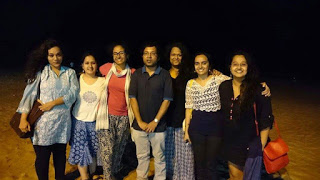
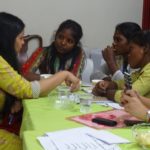
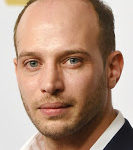

Leave a Reply